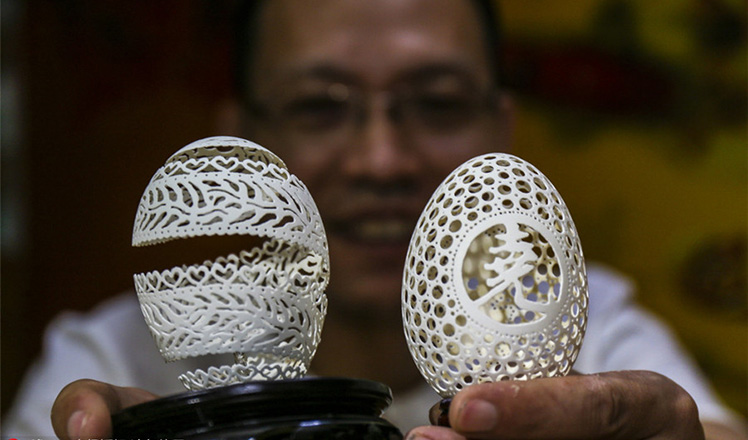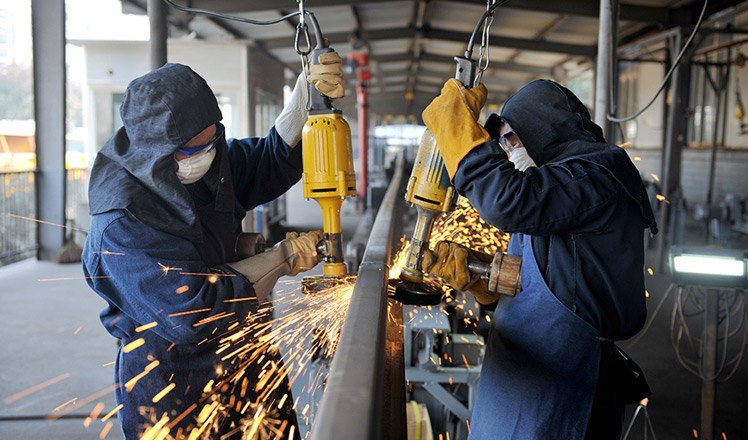Kai-Fu Lee: Cities power China's Internet startups
Updated: 2016-02-15 12:33
By Niu Yue in New York(China Daily USA)
|
||||||||
China's urban density makes it the best breeding ground for Internet startup companies, according to one of the country's top Internet executives.
China's megacities are the world's best on-demand economy incubator because "China possesses 54 big cities with a population over 2 million, but the US only had four such big cities", said Kai-Fu Lee, chairman of China's Innovation Works.
Lee spoke at a panel discussion at the China Institute in New York on Feb 10.
Due to the population density in Chinese cities, the Chinese Internet entrepreneurial market has "an apparent edge" over its American counterpart, said Lee, whose company is one of the largest early-stage investment firms that invest in Chinese Internet startups.
Lee, the founding president of Google China, who also has worked at Apple and Microsoft, said people in urban areas in China live in high-rise apartments, and their demand for various services made the online service sector a more lucrative market compared with that of the US.
In the US, Lee said the typical consumers are families living in less-densely populated area who drive miles to shopping centers.
Lee's company has invested in a series of startups that specialize in online services and cultural products, including Edaixi, an on-demand instant laundry online service, and Duocai Shijia, an online interior remodeling service that can be user-driven.
Lee's company has invested in several online cartoon studios, and each received millions of dollars in funding, among which the most well known is U17.com, China's largest online original cartoon website, which launched One Hundred Thousand Bad Jokes, a blockbuster Kuso cartoon series.
China already has the world's largest mobile Internet market. According to China's Ministry of Information Technology and Telecommunications, the country now has about 900 million mobile users, 600 million smartphone users and 300 million online-payment customers.
Lee said China has a much higher market saturation of online payment systems compared with the US, which is dominated by the traditional credit card system. China is "a better environment for online consumption", he said.
Deng Yongqiang, secretary of the Tsinghua University Alumni Association, who is in charge of online entrepreneurship investment, said his association invested only in "entrepreneur projects that feature Internet service and products".
Deng invested in about 50 different kinds of startup companies out of hundreds of initiatives and applications annually.
"No exceptions," Deng said, when asked about off-line startups.

"It is inevitably true that Internet entrepreneurial startups should be the next wave of the Chinese economy's engine," said Deng.
Beijing is the unrivaled hot spot for Chinese startups because of a preferential governmental policy and the well-established Zhongguancun Venture Park, Deng said.
"We had some business in other Chinese big cities like Shanghai," said Deng, "but the climate in Beijing favors young entrepreneurial startups most."
Li Chen, a Boston-based entrepreneur, said his website, Liaoyuan.io, specializes in integrating hundreds of young Chinese entrepreneurs in North America and is helping to create an industry-based social platform for entrepreneurship.
Li said his company has had two successful rounds of financing, and now has 20,000 registered members with four branch offices in Boston, New York, Los Angeles and Shanghai.
Long Yifan in New York contributed to this story.
- Missing children found safe in nearby village
- Rich Chinese splurge on sportswear as luxury's lustre dims
- Urgent remedy sought for pediatrician shortage
- China starts safety check for school buses as new semester draws near
- Ticket scalpers face crackdown at Beijing hospitals
- Judicial DNA test in hot demand after policy change
- Classic Car Show kicks off in London
- Balkan, Austria police agree to register refugees on Macedonian border
- Turkey blames Kurdish militants for Ankara bomb; vows reprisals
- Britain scrambles fighters to intercept Russian bombers
- Chinese community to protest against Peter Liang's verdict
- Car bomb attack on military in Turkish capital kills 28

 Chinese photographers' work shines in major photo contest
Chinese photographers' work shines in major photo contest
 88th Academy Awards Governors Ball Press Preview
88th Academy Awards Governors Ball Press Preview
 Egg carving master challenges Guinness World Record
Egg carving master challenges Guinness World Record
 Missing children found safe in nearby village
Missing children found safe in nearby village
 Madonna's world tour lands in Hong Kong
Madonna's world tour lands in Hong Kong
 Producing high-speed rail tracks
Producing high-speed rail tracks 
 Surreal world created by Canadian photographer
Surreal world created by Canadian photographer
 Lanterns light up the night across China
Lanterns light up the night across China
Most Viewed
Editor's Picks

|

|

|

|

|

|
Today's Top News
Investigation for Nicolas's campaign
Will US-ASEAN meeting be good for region?
Accentuate the positive in Sino-US relations
Dangerous games on peninsula will have no winner
National Art Museum showing 400 puppets in new exhibition
Finest Chinese porcelains expected to fetch over $28 million
Monkey portraits by Chinese ink painting masters
Beijing's movie fans in for new experience
US Weekly

|

|







